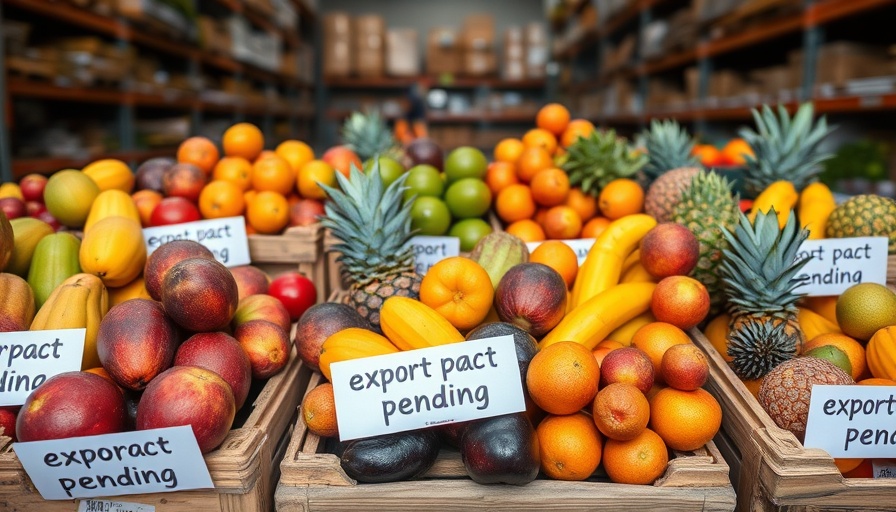
Why the PIC Rejected the R23 Billion Barloworld Bid: Governance Concerns Unveiled
The Public Investment Corporation (PIC) has recently made headlines after confirming the rejection of a R23 billion buyout bid for Barloworld due to governance issues. This decision not only raises eyebrows but also serves as a stark reminder of the complexities that underlie corporate acquisitions in South Africa, particularly against the backdrop of the nation’s economic recovery and issues related to accountability within state-owned enterprises.
Understanding the Governance Issues at Play
At the heart of the PIC's decision lies an array of governance concerns that have plagued Barloworld, particularly regarding the potential conflict of interest involving its CEO, Dominic Sewela. Analysts have criticized that the response given by Barloworld to these concerns was less than convincing. The company had disclosed governance issues in a three-page circular, yet it evidently failed to satisfy stakeholders who sought deeper transparency regarding the ownership structure and the decision-making processes involved in the bid from a consortium led by Saudi Arabia’s Zahid Group.
A Closer Look at the Political Landscape
The context of this rejection aligns deeply with current South African political realities. As the nation approaches national elections and grapples with the ongoing reputational impact of state capture and corruption investigations, decisions made by institutions like the PIC are significant. The management of state-owned enterprises often comes under scrutiny, with policies being influenced by the need for greater accountability. The failure to maintain transparent governance protocols can lead to conflicts of interest that might alarm investors and stakeholders alike.
Investor Sentiment: Analysis and Implications
This rejection is reflective of a broader sentiment surrounding South African corporate governance. Investors are increasingly emphasizing good governance as a critical dimension of investment decision-making. The reaction from Barloworld’s shareholders, who recently voted against the buyout, underlines a growing insistence on integrity and transparency in corporate dealings. Furthermore, a failure to provide adequate information about the negotiation process has been widely criticized by analysts, who believed that better communication might have mitigated some of the skepticism surrounding the bid.
Financial Impact and Future Outlook
The implications of the PIC's stance could have long-lasting effects on both the Barloworld acquisition attempt and the overall investor landscape. With South Africa still in the grip of economic challenges, including load shedding and high unemployment rates, the Barloworld situation exemplifies the complicated intersection of governance, business interests, and socio-economic conditions. Stakeholders are likely to anticipate a renewed focus on governance reforms within Barloworld, which could either strengthen or weaken its position in future negotiations.
The Role and Responsibility of State-Owned Enterprises
State-owned enterprises (SOEs) such as Barloworld play a pivotal role in the South African economy. The effectiveness and integrity of these organizations affect public trust and broader economic stability. As the PIC continues to uphold governance standards, it effectively sets a precedent for how SOEs should handle similar situations moving forward. This also reflects a commitment to using capital wisely for socioeconomic improvement against the backdrop of struggles such as climate change and dwindling public resources.
Call to Action: Advocating for Transparency
As we anticipate further developments regarding Barloworld's governance and acquisition saga, it becomes imperative for investors and the public to advocate for increased transparency and accountability within corporate South Africa. By doing so, stakeholders can foster a stronger economic environment that prioritizes ethical practices and sustainability.
 Add Row
Add Row  Add
Add 




Write A Comment